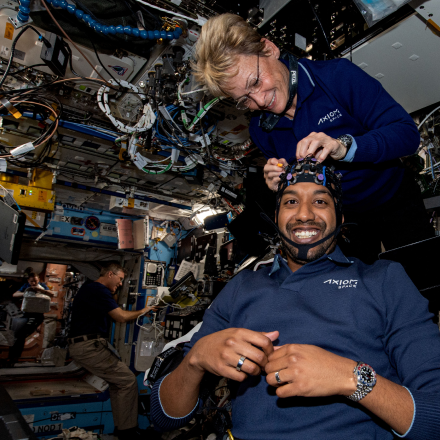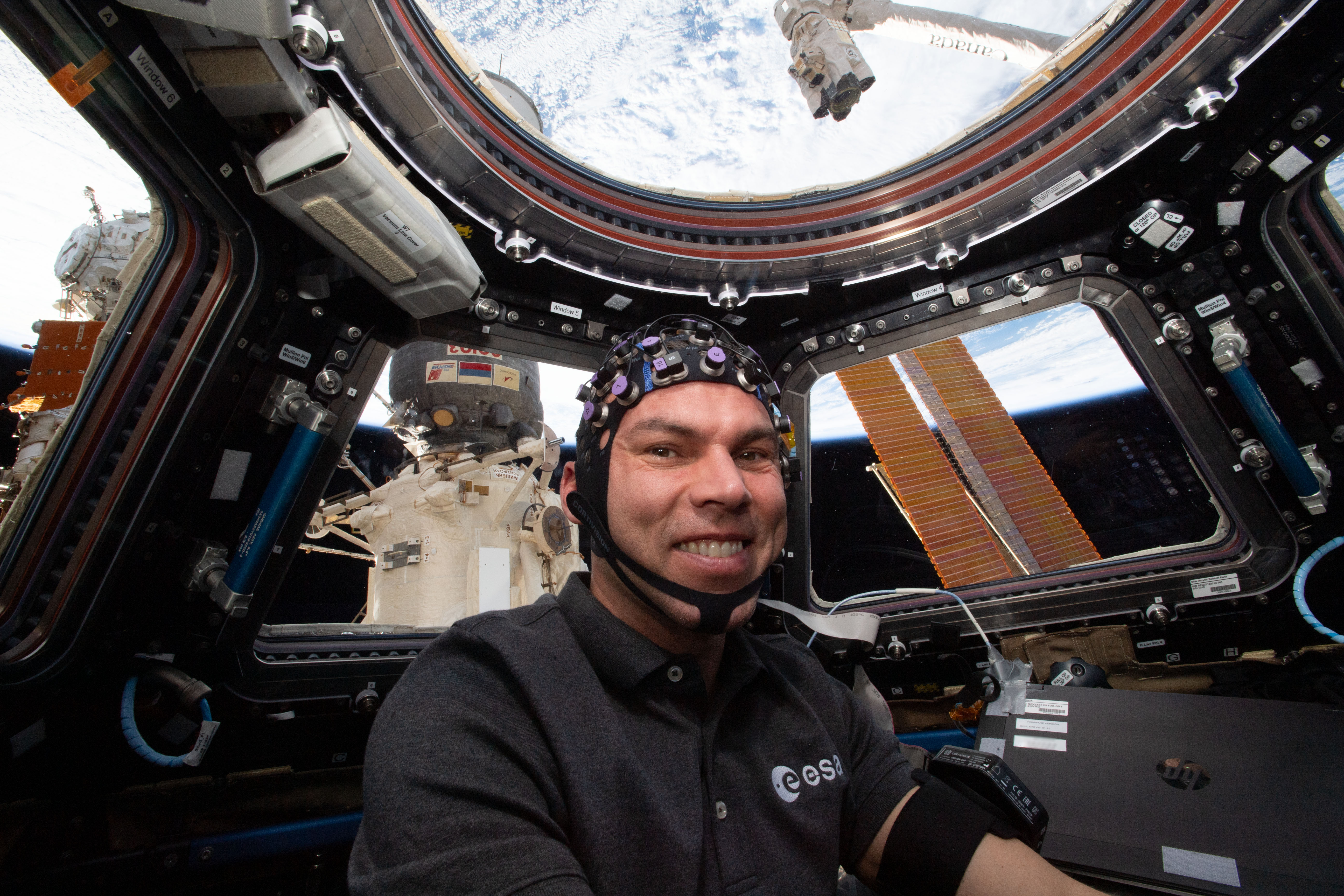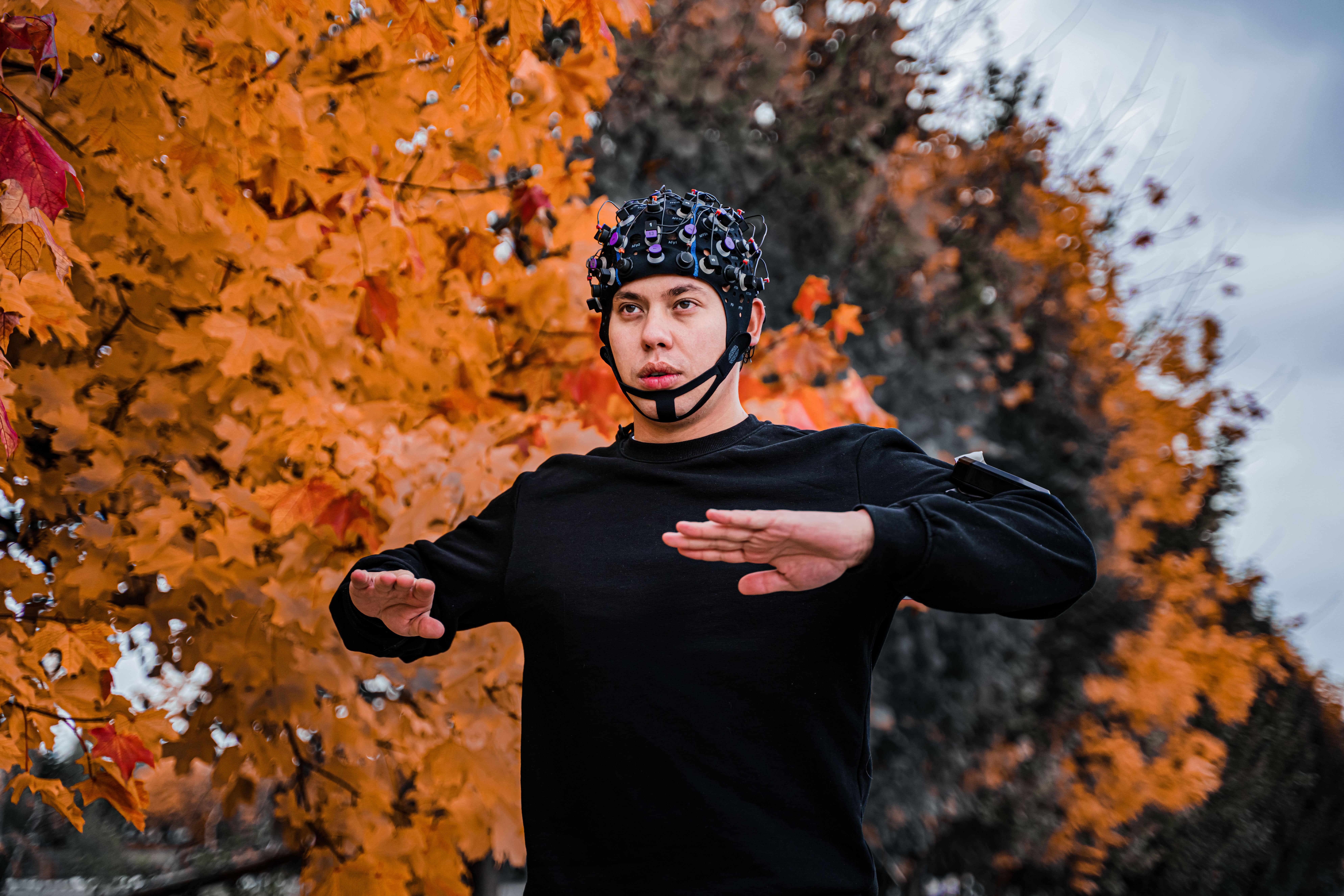
Cortivision’s fNIRS products are uniquely suited to research in extreme and non-traditional environments, enabling high-quality brain oxygenation changes monitoring in challenging settings. The Spectrum and Photon Cap fNIRS are engineered for portability, durability, and ease of use, making them ideal for non-laboratory research, such as remote field studies, sports science, and even space exploration.
Cortivision’s expertise in developing technology for extreme conditions is highlighted by the deployment of the Photon Cap on the International Space Station (ISS). As the first fNIRS system used in space, Cortivision’s product demonstrates its resilience, adaptability, and portability in one of the most challenging environments possible, providing researchers with a proven solution for innovative fNIRS studies.
The portability and lightweight design of Spectrum C23 make it exceptionally practical for dynamic research environments. With minimal neck load and a total headgear weight of only 180 grams, Spectrum is comfortable for long-duration use, even in active settings. Unlike traditional systems that restrict movement, Spectrum’s compact and user-friendly form enables unrestricted activity, which is essential in mobile studies, sports science, and field research.
To further support reliable data collection, Spectrum C23 incorporates robust data integrity features, minimizing interference and ensuring high data quality. Equipped with shielded cables and built-in short channels, it is designed to filter out noise and mitigate artifacts commonly encountered in mobile conditions. The integrated accelerometer and gyroscope contribute to additional stability and precision, allowing for accurate readings even in high-mobility scenarios where motion artifacts might typically degrade data quality.
Spectrum’s flexibility extends to its data transmission capabilities. The system includes both WiFi connectivity and an on-board SD card, providing researchers with dual options for data recording. With the portable router, Spectrum maintains a stable connection, making it ideal for remote areas where network availability might be limited or unreliable. This dual-mode data capture ensures researchers can collect continuous data, even in isolated or rugged locations, without compromising data security or consistency.
Extended battery life further enhances Spectrum’s applicability in extreme settings. The minimum 6-hour battery duration allows for long recording sessions, reducing the need for frequent recharges. An external USB power option provides added flexibility, accommodating prolonged sessions where power access may be challenging, such as in outdoor, high-altitude, or remote environments.
Adaptability is central to Cortivision’s design philosophy. Spectrum C23 supports multimodal integration and configurable setups, combining with EEG or VR technologies for versatile studies. The software ecosystem, including CortiView and CortiPrism, complements this flexibility, enabling customizable montages and diverse configurations. Researchers can create tailored setups, which is especially advantageous for complex or unconventional study designs required in extreme environmental research.
Cortivision’s commitment to quality, reliability, and research-centered design makes our fNIRS systems the ideal choice for researchers conducting brain monitoring in non-laboratory environments, from high-altitude studies to remote field sites and beyond.
See reference:
- Tian, C., Li, H., Tian, S., Tian, F., & Yang, H. (2024). The neurocognitive mechanism linking temperature and humidity with miners’ alertness: an fNIRS study. Scientific reports, 14(1), 11796. https://doi.org/10.1038/s41598-024-62674-z
- Shirah, B., Zu Eulenburg, P., Mason, C. E., Pandya, S., Gonzalez, Y., Persad, A. H., Ahmed, M. M., Ashemimry, M. N., Ertl, M., & Sen, J. (2024). Functional near-infrared spectroscopy as a noninvasive neuroimaging technique to measure cerebral perfusion in microgravity. In Neuroscience research in short-duration human spaceflight (pp. 83-99). Academic Press.





